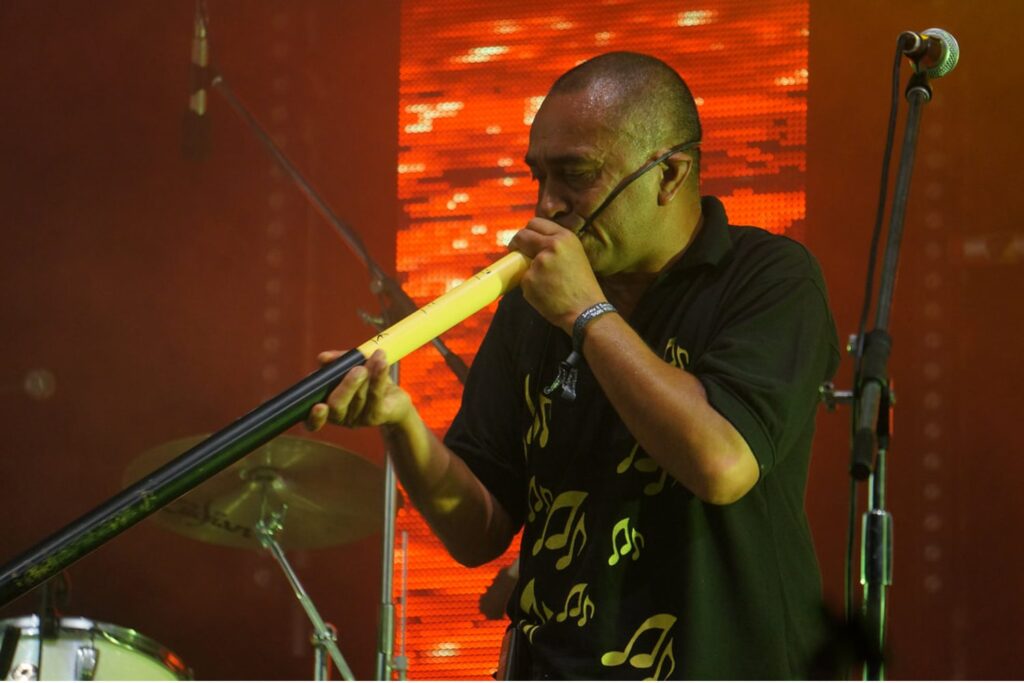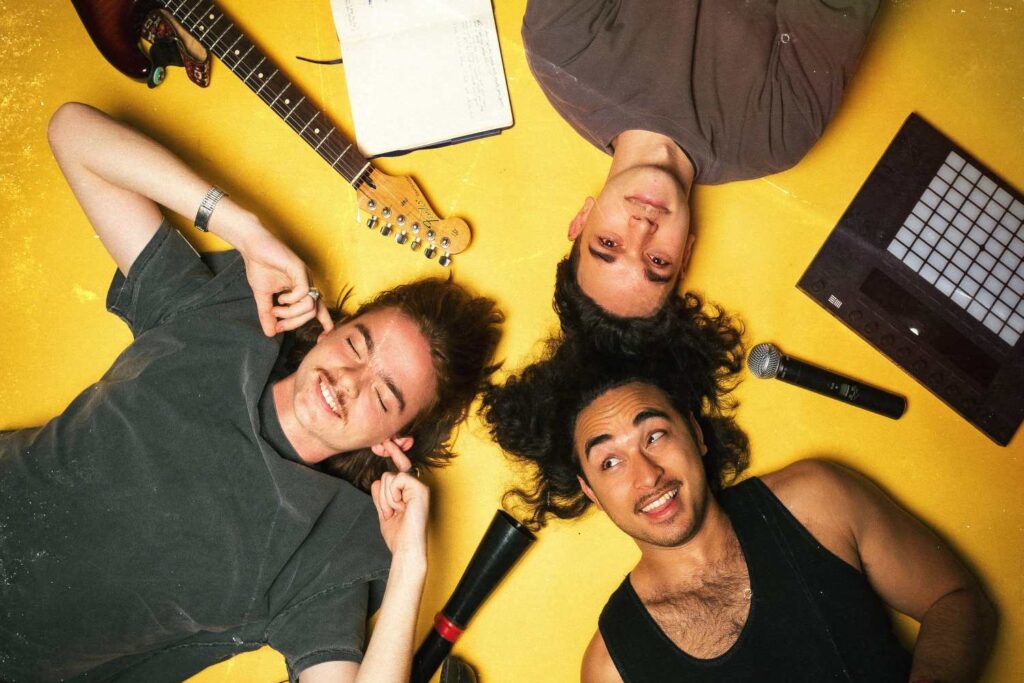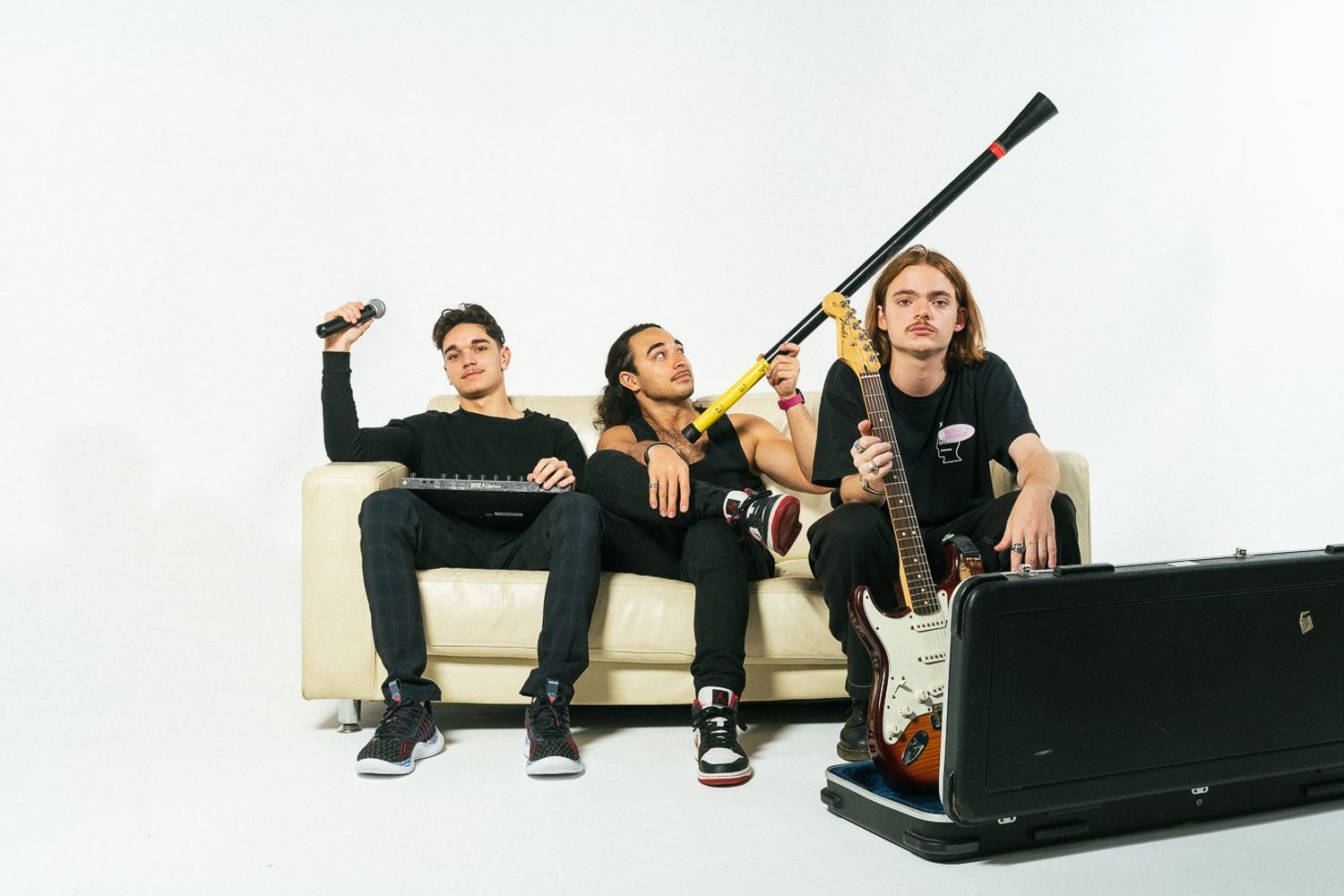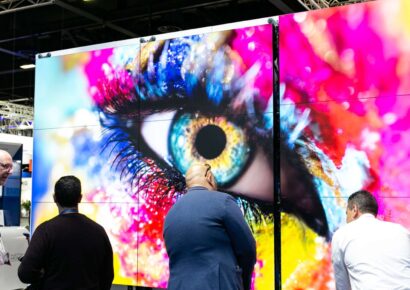Hot off of a festival appearance at Splendour in the Grass, Tjaka connect to their Indigenous roots through their music, crafting a contemporary experience influenced by hip-hop, reggae, funk and sounds from their ancestral Aboriginal culture.
Tjaka, the musical outfit made up of brothers and proud descendants of the Djabera Djabera tribe Geoff and Jake Fabila and family friend and guitar virtuoso Felix Fogarty, are generating some serious buzz within the Australian music industry. Mixdown was lucky enough to to sit down with Geoff and his father Adrian, aka Tjupurru, an esteemed performer and musician who has largely influenced the work of his children, and chat about go-to gear, generational exchange and their respective innovations as Didjeribone and Face Bass pioneers.
Read all the latest features, columns and more here.
Geoff, I’d love to ask you about your lifelong musical background. What would you say are the key influences throughout your journey thus far that have led to the development of your genre-transcendent, richly layered sound?
Geoff (Tjaka): I was very fortunate to be born into a family where being creative is encouraged. My dad and his siblings have been involved in the performing arts including music and dance over the years and they still are to this day. After learning circular breathing on the didjeribone at age 8, I was pretty much on stage with Dad from that point whenever I could be. Being on stage is a comfortable place for me and I owe this to these early experiences I had with dad always encouraging me to perform with him.
I was very fortunate to grow up meeting world class musicians and continuously hearing rehearsals of everything, and I think this set a foundation and influenced me a lot. The didjeribone and facebass were created to reinvent the sound of the didjeridoo, and I think what I am doing in Tjaka is just the next extension of what Charlie McMahon (Didjeribone and Face Bass Inventor and Didjeridoo pioneer) and Tjupurru had started, except with my own tastes an influences. Their pioneering formed the basis of what we do so there would be no Tjaka without Charlie McMahon and Tjupurru.

Talk me through your recording workflow from demo to track completion. Do you begin in the bedroom or head straight to the studio? Any preference of DAW/special demo set up that goes the extra mile?
Geoff: I’m an Ableton user through and through. I can’t claim to be an expert as there is much to learn, but I have to say my mindset when creating a completed track is to squeeze out every idea, variation or sound that I have as possible. Much of the band’s focus has been on our live performance and we have sat with songs for a long time before recording a demo. For us, this helps us think of some new parts to add, parts to take out and evolve the song before we record it. We try our best to demo the song ourselves using Ableton so we can play with it before jumping into the studio. This gives us more time with the track and play around with ideas.
Which pieces of equipment are the most integral to you when it comes to translating the project’s essence from a recorded to a live context? Are you trying to replicate your studio sound when you perform, or do you prefer to let the songs breathe and find their own live groove?
Geoff: Magoo, a legendary producer (Midnight Oil, Regurgitator, Kate Miller-Heidke, Powderfinger) gave me some very good advice when it came to translating a recording into live permanence. Initially, I thought that I should be using the music software to re-create the songs to make them sound exactly like the recordings. However his advice to me was, as long as the message and the energy of the song remain consistent, it is okay to have some variations between the two. We definitely try keep the primary parts which make the song, however we aren’t afraid to change some aspects up. I think this also keeps it fresh for us and the audience as well.
Do the two of you find that there has been a generational exchange of wisdom between yourselves as far as your creative process and musical output goes? What have you learned from each other?
Geoff: Yes I think that technology rapidly changing from when I was born has played a big part. The way music is made digitally has changed a lot. That being said, I’m still learning from dad even though the way I am writing music may be different to his process. Our band is still young and whilst we have a lot of ideas all the time, experience trumps age every time so dad is always giving us good pointers on what he thinks and we try to utilise this in rehearsals and in the studio.
Adrian: In our culture there is a rich tradition of passing down knowledge and techniques from one generation to the next. I frequently drew inspiration from those who came before me, learning from their successes and failures, and incorporating those lessons into my own work.
I learnt from my own experience that collaboration and interaction between artists of different generations can lead to a cross-pollination of ideas and a broader creative palette. This made it easy for me to include Geoff from age 8 and beyond to share our musical space on many stages, recording studios and rehearsals.
I’ve proudly watched Geoff gain fresh perspectives and insights which are more attuned to current trends and technological innovations.
What similarities do you see between yourselves as artists? What do you share, and where do your practices diverge?
Geoff: Both being Didjeridoo/Didjeribone players, I think we both consciously and unconsciously use the time we play as our connection to our culture. It’s a big part of who I am and I think dad would feel a similar way.
I think we also share the same thought process when it comes to trying new ideas when writing music. I have this thought process because I’ve seen dad utilise this way of thinking as I was growing up and always been encouraged to think this way. Always pushing the limit creatively to see what’s possible is something I try to do and hope to continue to do.
In addition, I think the way I perform and interact with crowds is a result of watching dad do it over many years. I have my own style but much of it was from how he has done it over the years.
Where we diverge is the styles of music we listen to and how we make music. I’ve grown up on hip-hop, reggae and electronic music influences and also with easier access to all music via internet and streaming services, which weren’t around when dad was my age. Different life experiences influence the way art is made and I’d say that shows through the different music styles we play.
Adrian: Similarities come from the exposure of music sources, genres and our cultural background. Musical techniques, because of our instruments and looping technology.
Shared themes, such as nature, identity, social issues, indicate a similarity in our artistic concerns and messages and the ability to collaborate on projects with other artists.
Are there any pieces of gear you’ve acquired, be it something cheap that punches massively above its weight, or a less-wallet friendly splurge, that have tangibly influenced the way you write and record music to this day?
Geoff: A little bit of bias on this one, but the didjeribone punches well above its weight with the way it can be used. For the price, you have so many different notes compared to a wooden yidaki which the length, diameter, and type of wood can determine the note. The didjeribone enables us to tune into any key and also actively play between keys (like a trombone). Second to this is a pen and notepad – this will never leave my instrument bag!
A bit less wallet friendly was my Ableton Push 2. In 2017, I was on my uni budget of 2 minute noodles and ham sandwiches to save for my first Push 2. This has formed the basis of how I can write songs effectively and get them ready to perform to the level I want quite quickly.
Adrian: I’m old school so I still use pedals that were made in the 1980’s that can’t be replicated by modern technology. I will admit that I am enjoying the challenge of the new Push 3 and using Ableton with my educational and music production projects. It’s important to note that while gear can be influential, my creativity and musicality are at the core of my work. The right gear can provide tools and inspiration, but my vision and skill remain central to my music-making process.

How do you recharge your creative batteries? What in your life inspires your music that isn’t music? It could be as logical as watching a film or listening to records, or as obscure as gardening or taking a long walk.
Geoff: Time with my family and friends is my recharge. It can be very busy trying to juggle music and a full time job and my girlfriend is a huge supporter of what I do and as soon as I’m not busy it’s all about spending time doing life things. Space away from writing and music can form the basis for new ideas when I’m back in the studio. It also lets me get excited about starting to write music again if I have taken some time to relax.
Adrian: Spending time in nature, whether it’s going for a walk, sitting by a river, or simply taking a walk in the park or on a beach, helps recharge my creative battery. This connection to the natural world often inspires new ideas and fresh perspectives.
The simple things in life inspire my music that isn’t music. I do enjoy gardening, figuring out how things work, windsurfing, snow skiing, taking long bike rides and lately, being a drone Pilot.
Top of the list is watching my family grow and live their best lives!
What’s on the horizon? What exciting things can we expect from you for the remainder of the year?
Geoff: We have an exciting end to this year. We have a few more singles coming out and we are very excited to share them to the world very soon! We have Big Sound in September along with some headline gigs in Newcastle, Coffs Harbour and at home in Brisbane – I’d say the boys and I will be getting Tjupurru up for a song or two at one of these!
Keep up with Geoff and Tjaka here.

